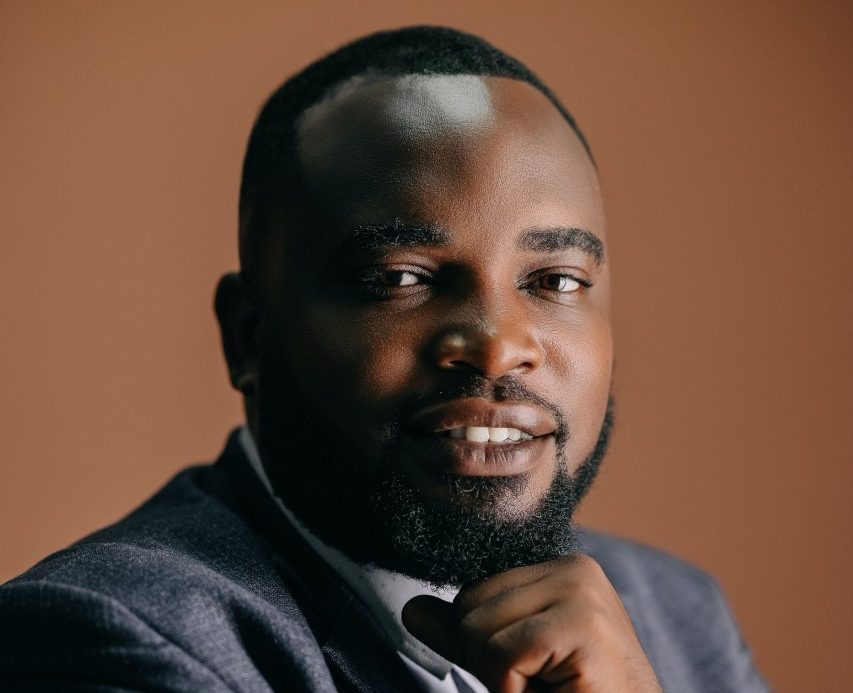This week’s Comms Spotlight is a throwback to some of the inspiring interviews we’ve had in Q1 2025. While these professionals work in diverse fields across Africa, Tech, Science, Education and Power; there’s a common thread in their stories, the love for communications and an emphasis on learning. Dive into these powerful insights on how to thrive in these industries as shared by these professionals who have built their Communications careers over the years.
Tobi Alaka, Corporate Communications Manager, Zone and Founder, Empowher

Do you have any tips for PR professionals who want to transition to Tech PR?
For PR professionals looking to transition into Tech PR, three key principles will set you apart: Be Curious, Be Creative, and Be Consistent.
- Be Curious:
Tech PR is a fast-paced and constantly evolving field, so curiosity is your best friend. Take the time to immerse yourself in the tech world—read industry blogs, follow thought leaders, and stay updated on trends like blockchain, AI, fintech, and beyond. It’s not enough to understand the surface-level buzzwords; dive deeper to learn how these technologies work and their impact on industries and people. The more curious you are, the better equipped you’ll be to craft compelling narratives that resonate with technical and non-technical audiences alike. - Be Creative:
In Tech PR, your creativity will be tested daily. The challenge lies in translating complex technologies into stories that captivate your audience. Creativity means finding fresh angles, leveraging innovative platforms, and thinking outside the box to make your campaigns stand out in a crowded space. Whether it’s humanizing a tech product by showing how it solves real-world problems or creating interactive, engaging content, your ability to think differently will set you apart. - Be Consistent:
Transitioning into Tech PR isn’t a one-time leap—it’s a journey. Build a routine of continuously learning, networking, and sharing your insights. Consistency in honing your skills, creating valuable content, and building relationships in the tech ecosystem will position you as a credible voice in the industry. It’s about showing up, learning, and evolving every single day.
To support PR professionals making this transition, I created an E-guide (Hack Your Way in: A beginners Guide into Tech PR) packed with actionable insights, practical tips, and case studies that demystify the world of Tech PR. It’s especially valuable for those coming from traditional PR backgrounds, as it bridges the gap between what you already know and the nuances of communicating in the tech space.
Tech PR is an incredibly rewarding career path, and with curiosity, creativity, and consistency—plus the right resources like my E-guide—you can successfully carve a niche for yourself and make a lasting impact in this ever-evolving field.
Davies Mbela, Communications Officer, Science for Africa Foundation

What’s one thing you’re currently learning about Communications?
One key area I’m currently deepening my expertise in is impact storytelling. It’s interesting to know that impact can be told not just as a final result, but as a journey. I’m exploring how to frame impact as a pathway, weaving together indicators, outputs, outcomes, and long-term transformation, each amplified at different timestamps to show progress and momentum.
This approach shifts the narrative from just reporting end results to capturing the evolution of change in real time. Additionally, I’m refining how to tailor impact stories for different stakeholders, recognising that funders, policymakers, researchers, and the public each perceive impact differently.
I’m balancing data-driven storytelling using metrics and evidence—with human-centred narratives that bring the numbers to life. Ultimately, I’m focused on making impact more visible, relatable, and actionable, ensuring that African-led science and innovation stories don’t just inform but inspire and drive change.
Carol Oyola, Lead, Global Storytelling and Engagement, Aga Khan University

Where do you see the communications industry heading, and what steps should professionals take to stay ahead of the curve?
The rise of Artificial Intelligence (AI) is changing how we communicate. For example in content creation, data analysis, graphic design etc., several AI tools have proven useful. We cannot run away from AI but we need to remain confident in our expertise which is strategic thinking and ethical storytelling. How to embrace AI without losing our creative juice? I still don’t know the answer to that question.
We live in a digital world where visual content is ruling. I believe the future of communications will involve exploring interactive visual content like animation, stop motion etc. We will need to upskill so that we can be comfortable with using a variety of visual platforms.
We generally need to be lifelong learners. Don’t be comfortable with what you know – learn new things, take short courses – be up to date with the evolving world of comms.
Ismaila Dan-Muhammadu, Manager, Communications and Brands, Kano Electricity Distribution Company

What advice can you give someone who is just starting their career in Communications?
My advice to someone who wants to start a career in communications is, first of all, to master the art of writing, storytelling, graphic design, and persuasive communication. These will form the basis for becoming a better communicator.
Beyond these skills, success in communications requires patience, resilience, and a commitment to continuous learning. The communication landscape is constantly evolving, with new trends in social media, crisis communications, stakeholder engagement, and, more recently, sustainability communications.
My second piece of advice is to build your brand. Your online presence matters. Share your insights, write articles, and position yourself as a thought leader in your desired communication field. Be a good storyteller that grabs attention with your creative writing.
Another key piece of advice for success in this age of AI is to build a strong network, gain hands-on experience (learning from mentors), and have a data-driven communication mindset for analysing audience insights, communication channels, noise management, tactical and strategic communication, and measuring communication impact through periodic communication audits.
Ultimately, aspiring communications professionals must understand their audience and adhere strictly to the ethical standards of the profession.





